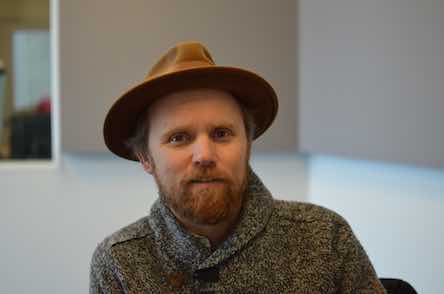
In new book “The Unsettlers:- Buy it on Amazon” , three American families go beyond ditching the Utility companies –they also walk away from supermarkets, cars and even banks — to define authentic living for themselves.
For “the Luddite curious,” says the LA Times “The Unsettlers” offers a compelling account of diverse Americans living off the grid. These homesteaders in Missouri, Detroit and Montana show us how the other other half lives.
Author Mark Sundeen will appear at Visit Skylight Books this Sunday at 5 p.m. Sunday, spoke to LA Times from Moab, Utah, where he himself spends time off the grid.
You begin with Ethan Hughes and Sarah Wilcox, a young couple who created an intentional living community in Missouri. Why them?
I’d decided that just living off the grid was no longer true dissent. I was curious to hear from people who could go all the way — stop using cars, stop using the banking system.
An intentional living community that forgoes cars, cash and electricity feels pretty radical, and yet you note similarities they share with libertarians and right-wing Christians, some of whom are their neighbors. Was this common ground surprising?
Totally surprising … and totally inspiring. I was so impressed that they were able to find that common ground. That’s something that I think’s important now that Trump is president. The divisiveness that he engenders, it pits people against each other who actually have the same values. Liberals and conservatives both want to live with moral integrity, but they have separate names for that. The right says, “We want to have Christian values, family values,” and that’s interpreted as anti-other religions or anti-single parents or anti-same-sex couples. Liberals say, “We want to end racism, we want to end bigotry, and we want to save the planet,” and that’s another way of living with integrity. I think there’s a lot more commonality than we tend to think.
You never suggest that the reader should renounce her worldly possessions and head to the farm — but are you hoping to influence people?
I’d specifically like the well-intentioned liberal to ask questions about their consumption and not just about their political stance. People say, “I’m going minimalist, I’m going to get rid of all my books and CDs and records and just use a smartphone.” Well, OK, I’m glad that your house is less cluttered, but you’re actually using more fossil fuels and doing more harm with that smartphone than you would with a whole library of books.
Each family’s commitment to the good life is inspiring but intimidating. For those of uswho are inspired to make a change, where do we begin?
I don’t think you begin by depriving yourself of things you love. On the one hand, this book is about the ethical boycott of destructive industries, but on the other hand it’s about following your heart and finding meaningful work. When you do work that you love, a lot of these needs tend to fall away.
Are there local organizations that inspired L.A. readers should investigate?
The Los Angeles Eco-village, the Urban Homestead and Root Simple, run by Kelly Coyne and Erik Knutzen.